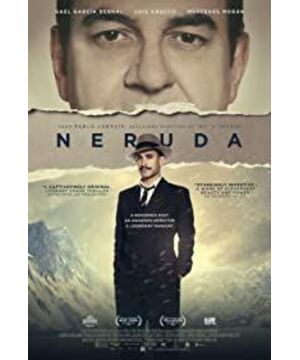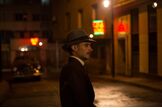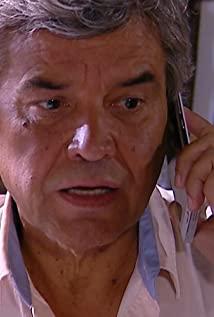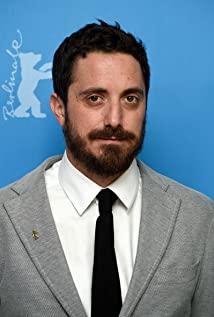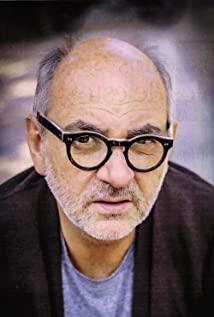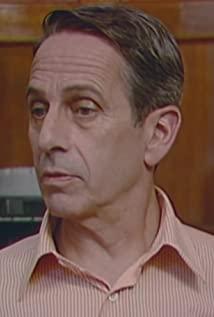Director Larraín's father is a well-known Chilean right-wing figure, like the Wikipedia Page. So, who do you think is the detective in the movie? Detectives said the mother was a prostitute and believed her biological father was a police officer. This may also mean that the director's previous self-identification was a right-wing diehard, a defender of state power. I feel like this film is an expedition to find out who Neruda is from the director's point of view. This detective is too poetic and literary, like an idealistic young man living in the spring breeze of his motherland. Including the director's own admission of the tribute to the motorcycle diary also reflects this. This is the story of a Che Guevara-style wealthy young man finding himself. Perhaps the source of the entire film is the director's reader, Neruda's poems and biography, to digest and re-understand Neruda. And the hunt itself was a process of remaking Neruda. The final "unification" is the unification of the director from the right wing and the First Communist Party of Chile. The director finally pointed out that although he was from a famous family, he was also a member of the people. Neruda came from the people, and his art created the people of that era and affects every Chilean today. It can be said that Neruda, as a Chilean national figure, was not only shaped by the Chilean people, but also shaped the modern Chilean. I feel like this is a clever piece of work. A very poetic allegory.
View more about
Neruda reviews


